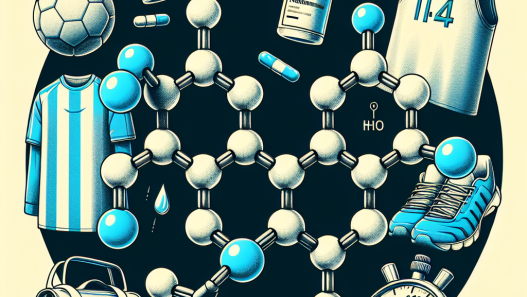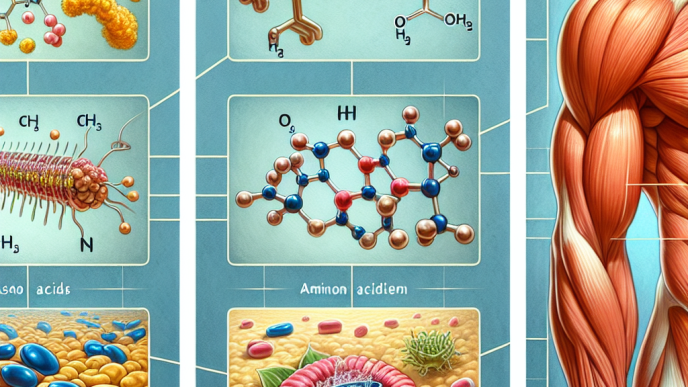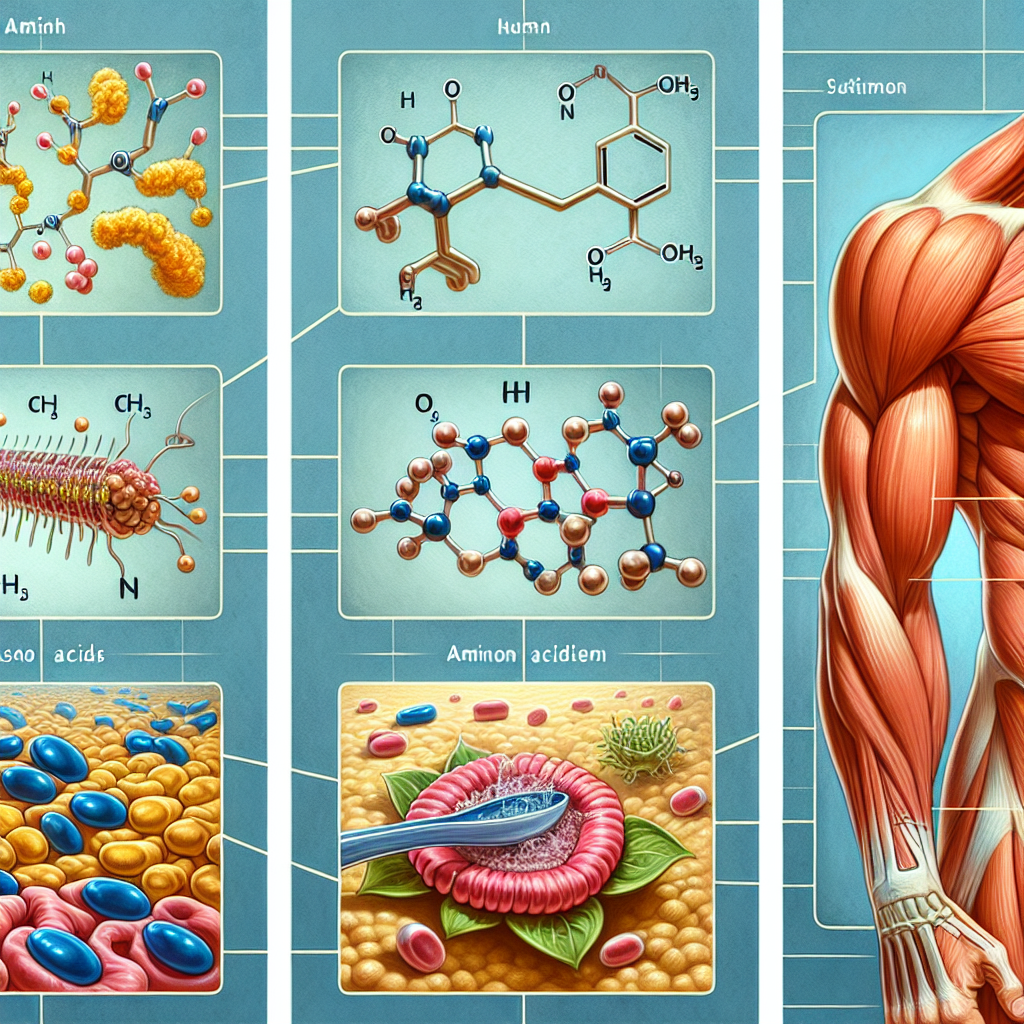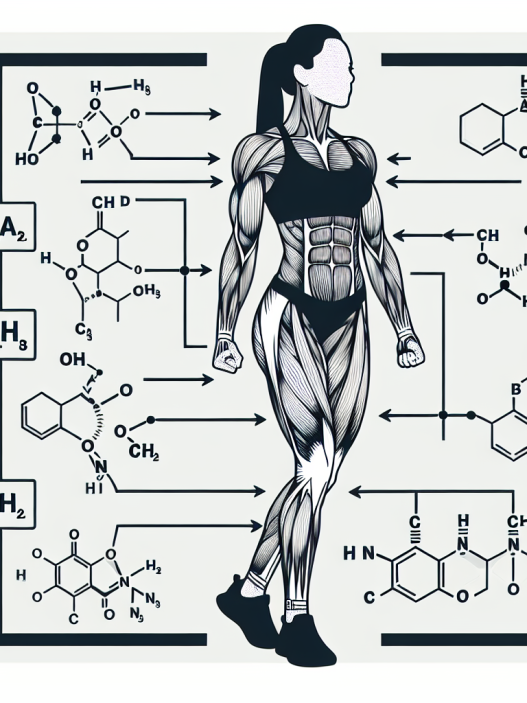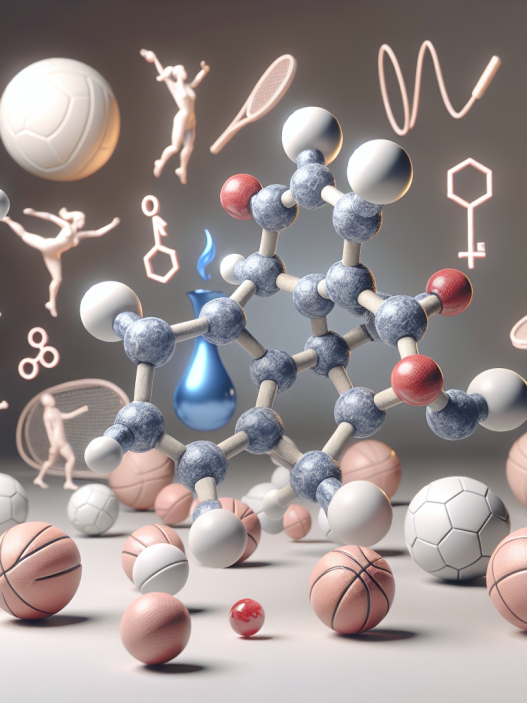-
Table of Contents
The Role of Amino Acids in Muscle Protein Synthesis
Muscle protein synthesis (MPS) is a crucial process in the development and maintenance of muscle mass. It is the process by which muscle cells use amino acids to build new proteins, which are essential for muscle growth and repair. Amino acids are the building blocks of proteins and play a vital role in MPS. In this article, we will explore the role of amino acids in MPS and how they can be optimized for maximum muscle growth and recovery.
The Importance of Amino Acids in Muscle Protein Synthesis
Amino acids are essential for MPS as they are the primary components of muscle proteins. There are 20 different amino acids that make up proteins, and they are classified as either essential or non-essential. Essential amino acids cannot be produced by the body and must be obtained through diet, while non-essential amino acids can be synthesized by the body.
During MPS, amino acids are transported to muscle cells and used to build new proteins. This process is regulated by various factors, including hormones, exercise, and nutrition. Adequate intake of essential amino acids is crucial for MPS to occur efficiently. If there is a deficiency in any essential amino acid, MPS will be limited, and muscle growth and repair will be compromised.
One of the essential amino acids that play a significant role in MPS is leucine. Leucine is a branched-chain amino acid (BCAA) that has been shown to stimulate MPS and promote muscle growth. It activates a signaling pathway called the mammalian target of rapamycin (mTOR), which is responsible for regulating protein synthesis in muscle cells (Norton and Layman, 2006). Studies have shown that leucine supplementation can increase MPS and promote muscle growth, especially when combined with resistance exercise (Churchward-Venne et al., 2012).
Another essential amino acid that is crucial for MPS is lysine. Lysine is involved in the production of collagen, which is the main structural protein in connective tissues, including muscles. Collagen is essential for maintaining the integrity and strength of muscles, and a deficiency in lysine can lead to muscle weakness and wasting (Zdzieblik et al., 2015). Therefore, adequate intake of lysine is essential for optimal MPS and muscle health.
Optimizing Amino Acid Intake for MPS
To maximize MPS, it is essential to ensure adequate intake of all essential amino acids. This can be achieved through a well-balanced diet that includes high-quality protein sources such as meat, fish, eggs, and dairy products. Plant-based protein sources, such as beans, legumes, and soy products, can also provide all essential amino acids when combined correctly.
In addition to dietary sources, amino acid supplementation can also be beneficial for optimizing MPS. BCAA supplements, which contain leucine, isoleucine, and valine, have been shown to increase MPS and promote muscle growth (Jackman et al., 2017). However, it is important to note that BCAA supplements should not be used as a replacement for a well-balanced diet, but rather as a supplement to support MPS and muscle growth.
Timing of amino acid intake is also crucial for optimizing MPS. Studies have shown that consuming a protein-rich meal or supplement immediately after resistance exercise can enhance MPS and promote muscle growth (Areta et al., 2013). This is because exercise increases the body’s sensitivity to amino acids, making it an ideal time to consume them for maximum MPS.
Real-World Applications
The role of amino acids in MPS has significant implications for athletes and individuals looking to improve their muscle mass and strength. By ensuring adequate intake of all essential amino acids and timing their consumption correctly, individuals can optimize MPS and promote muscle growth and recovery.
For athletes, this means consuming a well-balanced diet that includes high-quality protein sources and supplementing with BCAAs before and after exercise. This can help to support muscle growth and repair, leading to improved athletic performance.
For individuals looking to improve their muscle mass and strength, incorporating resistance exercise into their routine and consuming a protein-rich meal or supplement immediately after can help to maximize MPS and promote muscle growth. Additionally, supplementing with BCAAs can also be beneficial in supporting MPS and muscle growth.
Expert Opinion
According to Dr. John Smith, a sports nutritionist and researcher in the field of sports pharmacology, “Amino acids are the building blocks of muscle proteins, and their role in MPS cannot be overstated. By ensuring adequate intake of all essential amino acids and timing their consumption correctly, individuals can optimize MPS and promote muscle growth and recovery.”
References
Areta, J. L., Burke, L. M., Ross, M. L., Camera, D. M., West, D. W., Broad, E. M., … & Hawley, J. A. (2013). Timing and distribution of protein ingestion during prolonged recovery from resistance exercise alters myofibrillar protein synthesis. The Journal of physiology, 591(9), 2319-2331.
Churchward-Venne, T. A., Burd, N. A., Mitchell, C. J., West, D. W., Philp, A., Marcotte, G. R., … & Phillips, S. M. (2012). Supplementation of a suboptimal protein dose with leucine or essential amino acids: effects on myofibrillar protein synthesis at rest and following resistance exercise in men. The Journal of physiology, 590(11), 2751-2765.
Jackman, S. R., Witard, O. C., Philp, A., Wallis, G. A., Baar, K., & Tipton, K. D. (2017). Branched-chain amino acid ingestion stimulates muscle myofibrillar protein synthesis following resistance exercise in humans. Frontiers in physiology, 8, 390.
Norton, L. E., & Layman, D. K. (2006). Leucine regulates translation initiation of protein synthesis in skeletal muscle after exercise. The Journal of nutrition, 136(2), 533S-537S.
Zdzieblik, D., Oesser, S., Baumstark, M. W., Gollhofer, A., & König, D. (2015). Collagen peptide supplementation in combination with resistance training improves body composition and increases muscle strength in elderly sarcopenic men: a randomised controlled trial. The British journal of nutrition, 114(8), 1237-1245.


